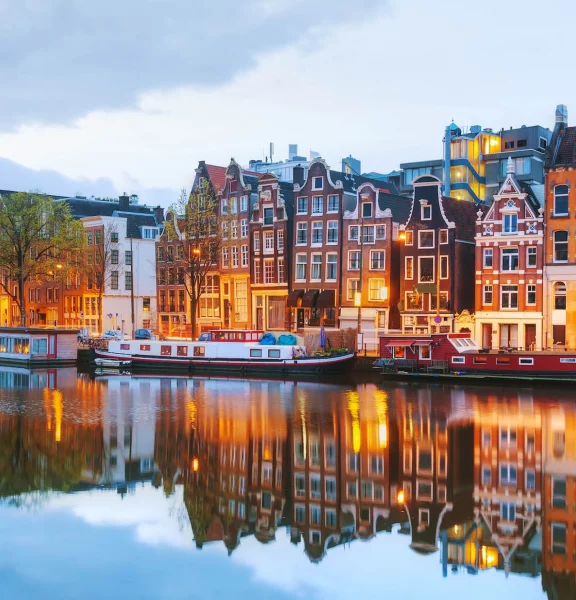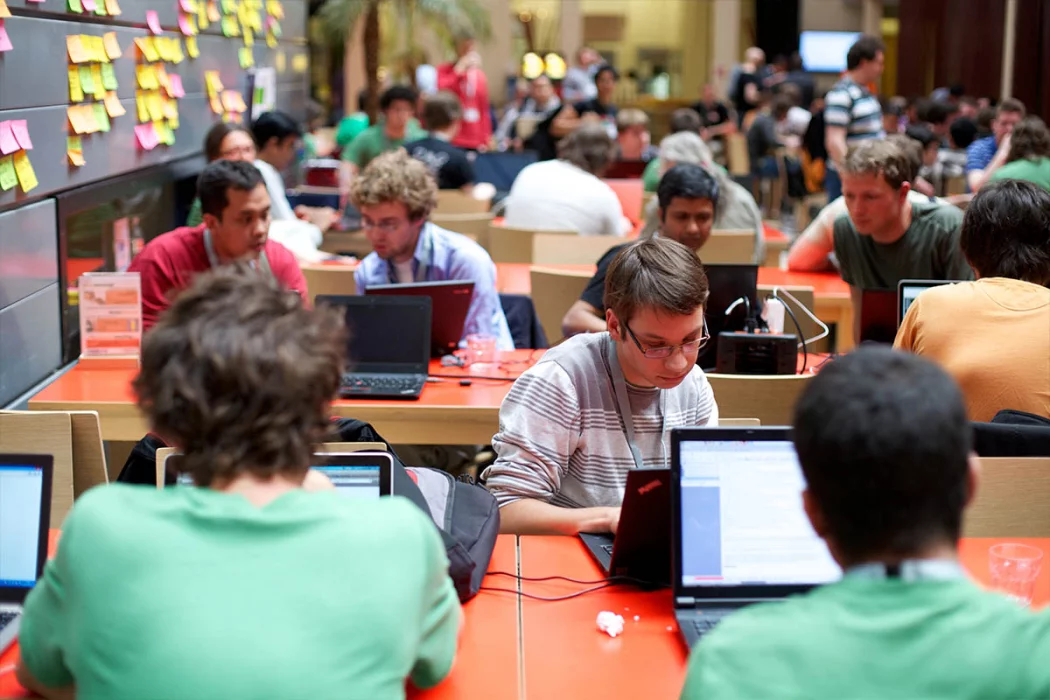Podcast special from Unimy, Unimy and Beyond, and Prepadivser. How and why should you use culture to find your best MBA?
Get a free consultation

International MBA students
Student satisfaction rate
Schools accredited by AACSB, AMBA or EQUIS
Average annual salary
Your guide to studying in netherlands
World-renowned education, plenty of programs in English, and an exciting cultural environment – the Netherlands offers a dream study experience in Europe. Although modest in size, the country has a diverse and welcoming community – many different nationalities call it their home. Dutch cities are full of things to explore – visit the Rijksmuseum for a trip back in time or immerse in the colorful festivals like the annual King’s Day. The Netherlands’ central location is a big plus, considering how easy it is to travel to neighboring countries. International students should expect practical learning and emphasis on collaboration and critical thinking.
Cultural Specifics of netherlands
One of the things Dutch people are famous for is being direct in their communication. In many situations, they might prefer to be honest and straightforward, which can be surprising to newcomers. Punctuality is important in both business and social gatherings, so it would be a good idea to arrive on time or even a few minutes early for appointments. The Netherlands generally has an informal approach to hierarchies and an egalitarian society, where inclusivity is a top priority. When greeting each other, locals go for a firm handshake or in the case of close friends – three kisses on the cheek.
People who move to the Netherlands for the first time quickly learn of “gezelligheid” – a concept, which roughly translates to coziness or conviviality and which is central to Dutch culture. The Dutch also have a strong cycling culture. Bikes and bike lanes are a common sight in cities of different sizes.
Business Culture in netherlands
In their business dealings, people in the Netherlands like to get to the point and prefer not to waste time in indirect communication. When you’re in a meeting, expect honest feedback and a straightforward approach. It’s always acceptable to disagree on a topic, but it’s improtant to express it respectfully. If wondering about the dress code, business casual usually works best – fancy attire is only necessary if the occasion specifically requires it. The Dutch like to plan ahead, so coming prepared with a schedule and agenda will be a plus in meetings.
They also value equality, both in their personal life and in business, so you can often see bosses and employees chatting casually over coffee. Collective decision-making is common at the end of meetings and everyone pitches in to help – teamwork is key.
The experiences of students and alumni in netherlands
The MBA Cultural Fit Index compares schools along different cultural dimensions.
Unimy brought together two international MBA students at leading schools in Europe to tell us about their cultural, professional, and personal transformations studying on a new continent.
Advantages of the MBA programs in netherlands
The latest Financial Times MBA and EMBA rankings list 3 Dutch schools among the top in the world, recognizing their strategic locations and the significant advantages in networking and career opportunities they provide. Of the only 129 schools globally that hold the coveted Triple Crown accreditation, 3 universities in the Netherlands are accredited by AACSB, EQUIS, and AMBA – a marker of high educational standards and international credibility.
Studying in the Netherlands means gaining access to some excellent benefits. For example, some universities provide scholarships that can reduce the tuition fees of deserving MBA students by up to 50%. There are scholarships dedicated to women, entrepreneurs, and those that prove academic excellence. Financial aid by the government should not be ruled out as a viable option either – the NL Scholarship (formerly known as Holland Scholarship) is one such opportunity, offering financial support to non-EEA students.
Post-MBA career development in the Netherlands is exciting thanks to the global growth of local companies in finance, technology, and logistics, such as ING, ABN AMRO, and Philips. Job opportunities are diverse following graduation, and with the post-study work permit (also known as the “Orientation Year” permit), international graduates can stay in the country for up to a year to seek employment.
COMMON EXPENSES AND LEGAL ASPECTS
Cost of living
Rent of one-bedroom apartment in city center (monthly): EUR 1366.42
Basic utilities (monthly): EUR 226.11
Public transport pass (monthly): EUR 80.00
Gym subscription (monthly): EUR 36.16
Water (1.5-liter bottle): EUR 0.72
Source: Numbeo
Visa requirements and work permits
If you’re from outside the EU/EEA, most likely you will need a student visa (MVV) and a residence permit to study in the Netherlands. The university you apply to typically helps with the visa process after you’ve been accepted into the MBA program. One of the first steps accepted applicants have to take is proving they have sufficient financial means and health insurance coverage. As for work, students can work up to 16 hours per week during the academic year or full-time during the summer only if their employer applies for their work permit. EU/EEA students do not need a visa or work permit.
FEATURED SCHOOLS IN netherlands



Explore the most popular MBA programs in netherlands
You might also be interested in...
Request a consultation
Get a free consultation with our expert advisors and discover the MBA that best suits your profile and aspirations.

